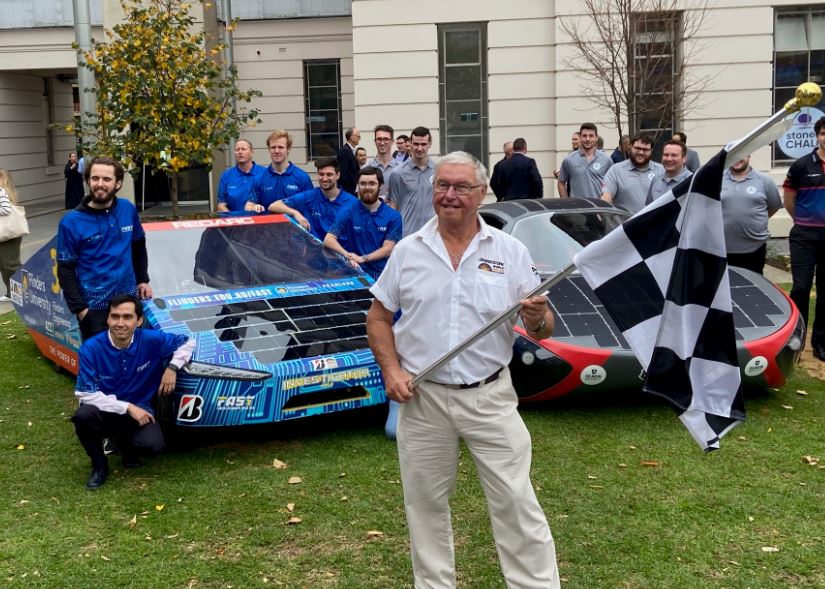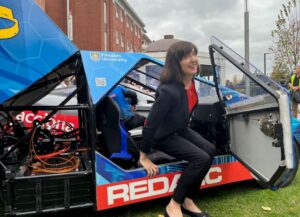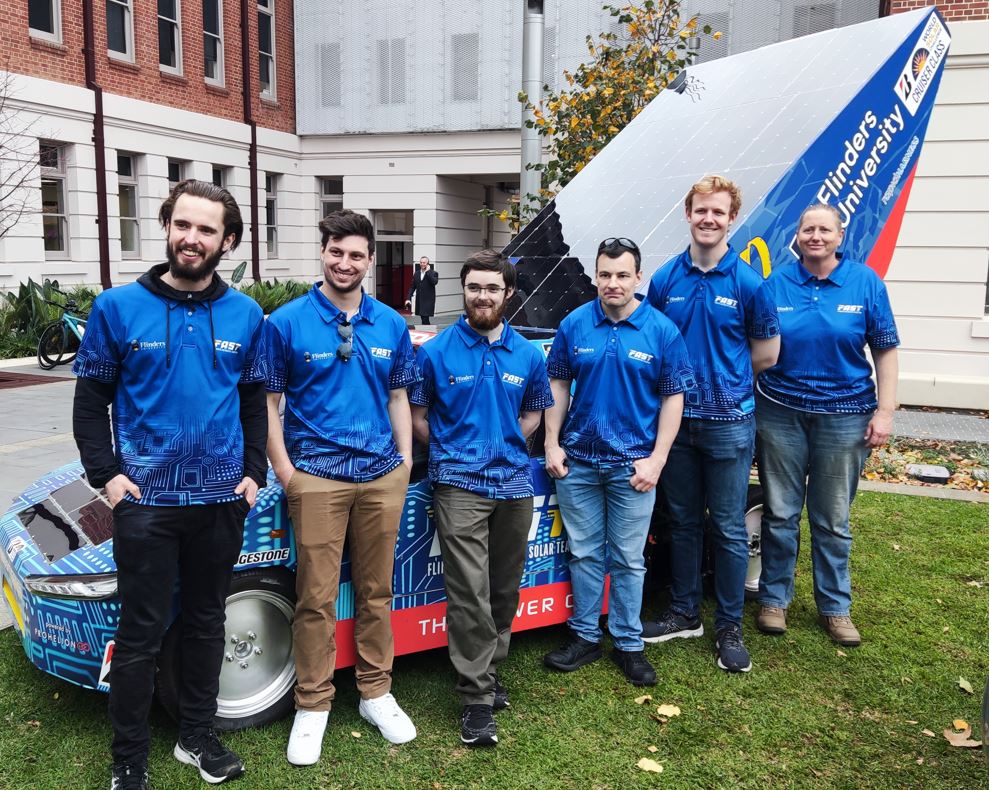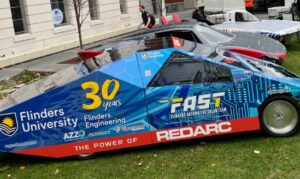
The Flinders University ‘FAST’ vehicle has made a successful public debut at the Bridgestone World Solar Challenge (BWSC) launch event on World Environment Day.
Coinciding with the 30 years of engineering celebrations this year, the Flinders Automotive Solar Team (FAST) solar-electric passenger vehicle will continue preparations and road-testing for the 3000km Darwin-Adelaide BWSC later this year (22-29 October).

Event director Mr Chris Selwood, Bridgestone officials and South Australia’s Deputy Premier Susan Close attended the launch – all of them praising the enterprise and skills of the Australian and international entries in the three classes.
Ms Close says the event, this year attracting hundreds of participants and support crews from around the world, will be testament to the teams, industry, entrepreneurs and advocates for a more sustainable future. A total of 39 teams from 20 countries will start from the Hidden Valley Raceway in Darwin on 22 October.
“This wonderful event enhances South Australia’s reputation as a significant player in high-tech industries, demonstrated by our commitment to defence, space and renewable energy,” she says.
Attracting competitors from around the world, the event draws attention to the global race to find solutions to climate change through STEM skills and next-generation thinking.

Mr Selwood says the event, first run in 1987, continues to focus on finding sustainable options for travel.
“As consumers increasingly look to more sustainable mobility options to petrol driven cars and governments strive for renewable energy solutions, this event raises awareness to the possibilities of now just what could be but what can be achieved now,” he says. “It is the ultimate proving ground over 3000 kilometres.”
This year the Cruiser Class of solar electric vehicles, which the Flinders entry is one, has attracted 10 entries from Australia and overseas countries.
 The Cruiser goal is to deliver a practical, energy efficient, marketable solar electric car, travelling up to 1000km before external charging. Final judging will occur in Adelaide.
The Cruiser goal is to deliver a practical, energy efficient, marketable solar electric car, travelling up to 1000km before external charging. Final judging will occur in Adelaide.
The closely contested solar Challenger Class has 29 entries from more than 15 countries.
The Bridgestone World Solar Challenge is the world’s biggest and most prestigious solar challenge. This year’s event features a showcase of electric vehicles at the finish line.
In 2019, a record 53 entries from 24 countries were received and around 1,500 participants were observed and followed by a global audience of more than 25 million. The event generates industry partnerships across energy, automotive, engineering, financial, material sciences, and IT sectors.
Bridgestone World Solar Challenge alumni have progressed from participation in our event to employment with some of the world’s leading engineering, automotive and sustainable transport companies.

